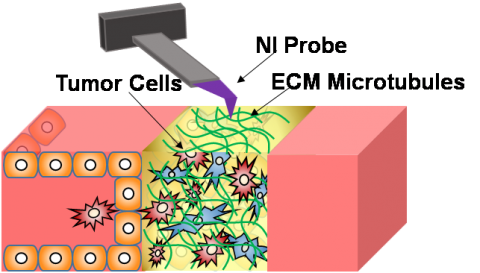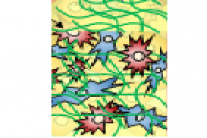Dr.
Chemical Engineering Assistant Professor receives over $200K research grant to design a synthetic 3D network tissue engineered scaffold to study the relapse/regrowth of cancer cells
Mon, 05/10/2021 - 9:32amThe Biomedical Engineering and Advanced Materials Lab (BEAM-Lab) at the University of Louisiana at Lafayette has received a Louisiana Board of Regents grant to study the regrowth of tumor cells in a synthetic 3-dimensional environment. Dr. Dilip Depan, Assistant Professor of Chemical Engineering and Director of BEAM-Lab is leading the 3-year funded project ($228,179) to design a synthetic 3D network tissue engineered scaffold to study the relapse or regrowth of tumor cells. This grant will help to enhance the competitiveness of the biomedical engineering research program at UL Lafayette to attract and secure federal funds.
The main goal of the proposed work is to test the novel approach of using a state-of-the-art nanoindentation (NI) technique on single cancer cells to determine the exact mechanical state of extra-cellular matrix when the tumor cells start to extravasate, significantly advancing the scientific knowledge on cancer research.
The proposed model will help to understand the impact of poking single tumor cells using NI tip which should provide extremely reliable and precise information on the mechanical state of tumor cells, before, during, and after treatment of an anticancer drug, thereby providing the exact stage of tumor metastasis.
Another benefit of the proposed 3D model is that the developed model, through this study, can be effectively utilized to study a variety of diseases that impact human health.

Schematic illustration of NI test on tumor cells.

